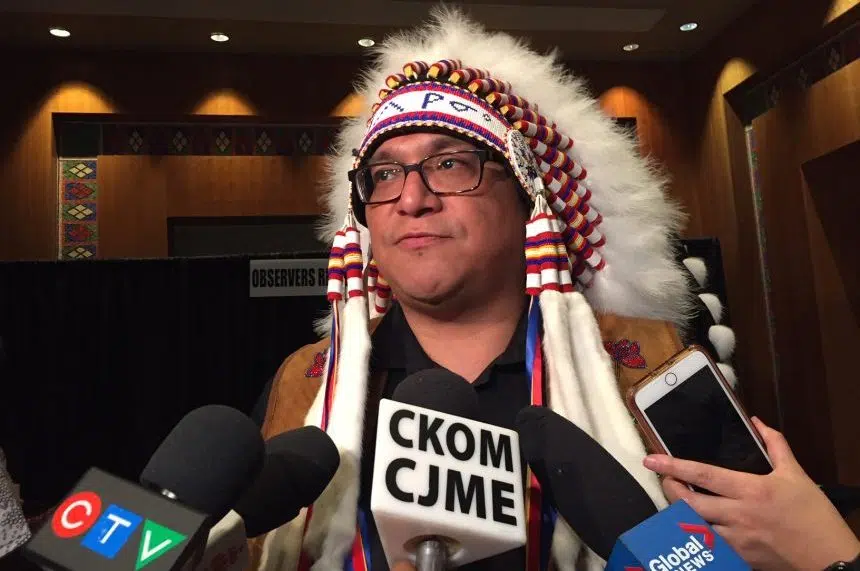Saskatchewan’s Indigenous population continues to grapple with the COVID-19 pandemic, along with vaccine availability.
On Dec. 2, the Federation of Sovereign Indigenous Nations (FSIN) called for First Nations to have first priority on the coronavirus vaccine rollout.
However, during Wednesday’s announcement by the provincial government about the delivery plan, it was revealed the vaccines would be administered at the Regina General Hospital, with health-care workers at the front of the line.
FSIN Second Vice-Chief David Pratt told 650 CKOM Thursday he was disappointed in the announcement, but not with the provincial government.
“We’re disappointed with the federal government’s handling of the vaccine rollout. For them, trusting the province to administer the vaccine — that’s something we’re not obviously happy with,” he said.
“We believe that the Crown and the federal government in lieu of the Crown has a treaty obligation to provide support to First Nations during times of famine and pestilence.”
Pratt cited the treaty obligation, along with pointing to the issues with underlying health conditions and the Indigenous population.
He said many are suffering from diabetes and heart disease, putting the risk high with the effects potentially fatal.
Pratt acknowledged that his people are dying from COVID-19.
“We’ve lost about five of our elders in the last three or four days,” he said.
Elders from the Carry the Kettle and Mosquito First Nations have passed away within that time frame, Pratt said. He added the losses of a band councillor from Cumberland House and Ahtahkakoop’s Fred Sasakamoose are being felt throughout the Indigenous community.
When it comes to the rollout of the vaccine, Pratt said he has an idea as to how that will play out, based on experience gained in the 2000s.
“We already (did) it before. We did the H1N1. Those vaccines were distributed through Health Canada directly to the First Nations. We administered them (and) we had no difficulties,” he said.
“We’d like those vaccines to flow directly to our communities.”
He added that band members who live off reserve would not be hard to find, thanks to membership lists among other resources.
“We want to make sure our people are safe, we want to make sure our people are vaccinated (and) we want to make sure our people are protected,” he said.
When it comes to COVID within Saskatchewan’s Indigenous communities, Pratt said he’d like to see some sort of reporting for people both on and off reserve, yet there are some issues with that process.
“It’s a bit of a challenge right now, and I don’t want to kick the Saskatchewan Health Authority … They’re doing the best that they can with what they have to work with right now,” he said. “They’re so busy doing the contact tracing on all the positive cases that I don’t think they have the time.
“A large part of our population is urban … That’s some of the challenges we’re facing.”
When it comes to working with the SHA, Pratt is ready if the authority is.
“I think it would be helpful (to report Indigenous COVID infections),” he said. “Anytime we can collect data, (by) all means, that’s important because we can strengthen some of those arguments for some of those supports … We’re prepared to work with the SHA any way that we can assist to help them collecting data.”
650 CKOM reached out to the province for comment on having data for Saskatchewan’s Indigenous population but didn’t receive a response at the time of publishing.







